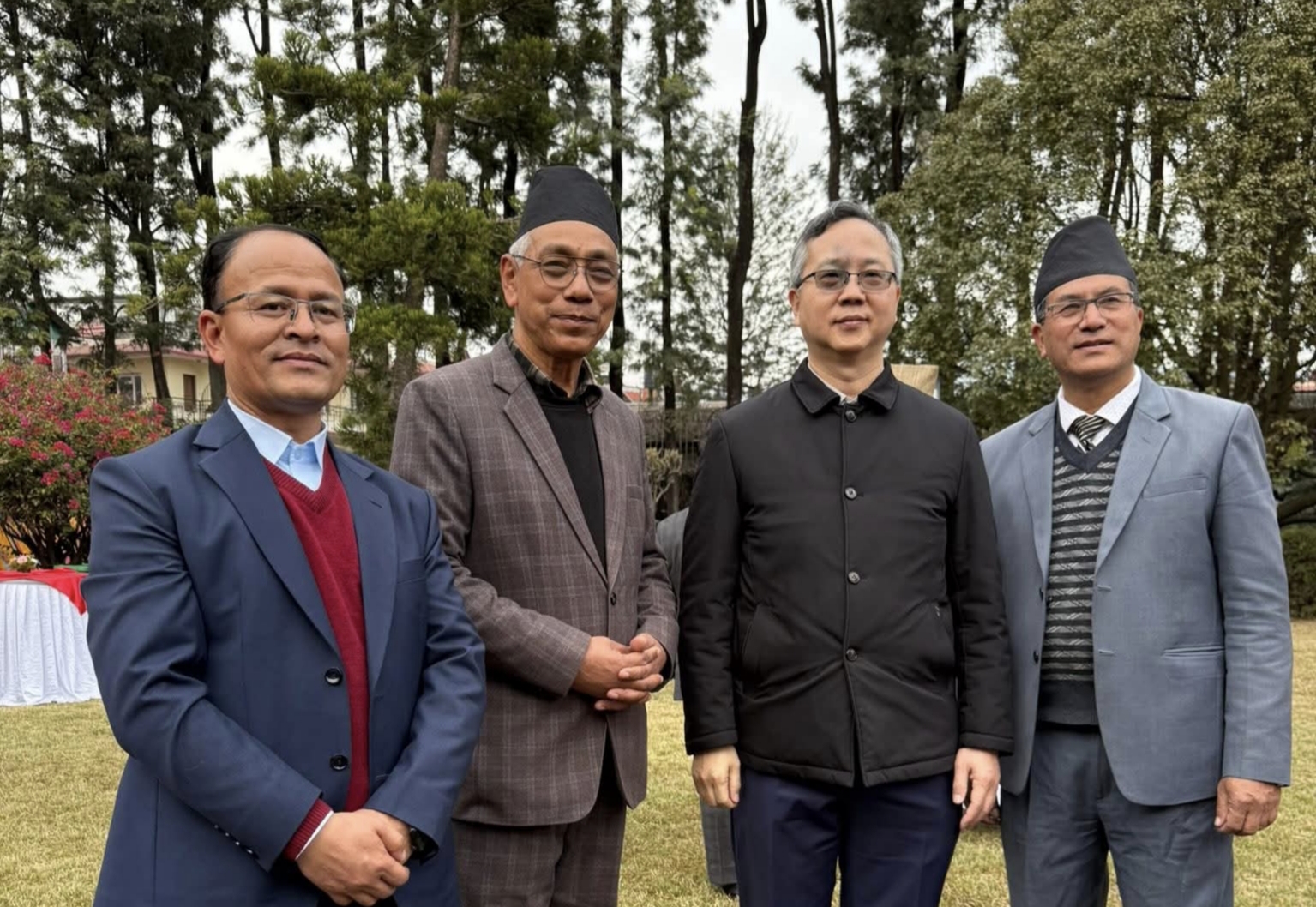Convened every five years, the Communist Party of China’s week-long 19th National Congress has closed in Beijing. The Congress is the highest decision-making body of the party and its 89 million members. Nearly 2,300 elected delegates gathered to perform three major tasks: review the party’s work and China’s political situation since the previous Congress; formulate policy guidelines for the party going forward; and elect a new party leadership for the next five years.
During the congress, President Xi Jinping announced significant developments for the party and country: increasing prioritization of people-first development and a declaration that Chinese socialism has entered a “new era.”
The people-centered governance emphasized during Xi’s first term is overwhelmingly supported by the Chinese people, with 87 percent feeling that the country is headed in the right direction — the highest such figure in the world. This is reflected in the party, which has expressed a high degree of consensus and has designated Xi as its “core leader.”
At the congress, Xi emphasized that the party must continue prioritizing people’s needs, environmental sustainability, improving the party, Marxist education, higher quality development, and international cooperation and peace.
People-first governance
Lifting over 60 million people out of poverty during Xi’s first term, the party is on track to eradicate poverty in China by 2020. Xi vowed to defeat poverty, continue improving living conditions, and expand social supports, such as healthcare which the party recently declared to be a universal human right.
Environmental sustainability
A world leader in renewable energy production and employment, China is praised for the “best response to the world’s environmental crisis.” Xi stressed that China must “cherish our environment as we cherish our lives” and take a leading role in promoting international cooperation to respond to climate change.
Improving the party
Since 2012, the party’s thorough anti-corruption campaign has focused on improving the quality of the party by combating “formalism, bureaucratism, hedonism, and extravagance.” Implementing stricter requirements for party work, over a million members have been disciplined. The party has emphasized developing “close contact with the grassroots,” cracked down on inappropriate uses of public funds, and tied promotions of officials to achievements which advance people’s interests, such as environmental protection and raising living standards.
The party has also emphasized strengthening Marxist education among its members and throughout society, with Xi stating that “if we deviate from or abandon Marxism, our party would lose its soul and direction … On the fundamental issue of upholding the guiding role of Marxism, we must maintain unswerving resolve, never wavering at any time or under any circumstances.”
At the congress, Xi stated that the struggle to improve the party must never end because, without the strong leadership of the party, China’s development will be mere “wishful thinking.”
National economic development
The party has strengthened its role in state-owned enterprises, along with private firms and joint ventures with foreign partners. Ensuring that capitalist elements remain under socialist state’s firm control, the party has increased regulation of entrepreneurs and cracked down on outbound investment by private firms. Xi stressed that China will continue to support state capital in “becoming stronger, better, and bigger” as it transitions “from rapid growth to more high-quality economic development.”
International cooperation, peace, and development
China strives to play a leading international role, promoting cooperation, peaceful development, and environmental sustainability to build a multilateral, more democratic international order. To promote multipolarity, China supports the development and empowerment of the Global South and solidarity among developing countries.
Xi stated that China will offer support to developing countries seeking modernization and independence. China’s international vision is represented by its Belt and Road initiative — “the largest single infrastructure program in human history” — involving over 65 countries and 1,700 development projects.
Distinguishing China from the domination and unilateralism of the U.S. and West, Xi stated that China will never pursue expansion, hegemony, or development at the expense of others. China promotes peace and dialogue over conflict and interventionism, however, the party is aware that China is the primary target of the U.S. empire, which will aggressively protect its global hegemony. Xi stated that China’s military must be “world class” and combat-ready.
Entering a “new era”
Socialism with Chinese characteristics has entered a new era as the “principal contradiction” in Chinese society has evolved, Xi Jinping declared in his opening address. “What we now face is the contradiction between unbalanced and inadequate development and the people’s ever-growing needs for a better life,” he said, marking a “historic shift” in the party’s orientation towards socialist development.
Previously, the party considered the principal contradiction to be one between people’s needs and China’s economic underdevelopment — historically imposed by Western and Japanese domination. This formed the theoretical basis for the economic reforms initiated in 1978, seeking to overcome the obstacles of underdevelopment and global inequality wrought by imperialism.
At that time, although the socialist revolution had significantly improved living standards — nearly doubling life expectancy from 1949 to 1978 — China was still extremely poor, being economically weaker than India and with 542 million people living on less than one dollar per day.
The reforms have allowed for a sphere of capitalist development, with the commanding heights of the economy remaining under public ownership and the firm control of the socialist state. Following their introduction, China has achieved unprecedented economic and technological development, becoming the world’s second most powerful economy and building a modern, moderately prosperous society.
While capitalists exist in China today, unlike in capitalist societies they do not have political authority, instead, existing under the rule of the socialist state to aid economic development. Capitalists transgressing their boundaries are swiftly dealt with by the party — an annual list of China’s richest citizens is commonly called the “death list” or “kill pigs list” because those named are often later imprisoned.
Since 1978, living conditions have consistently improved, as China has lifted over 800 million people out of poverty — more than the rest of the world combined. From 1978 to 2015, real income for the bottom half of earners grew 401 percent, compared to a decrease of 1 percent in the U.S. Average incomes across China’s entire labor force are soaring and are now approximately 70 percent of levels in weaker eurozone countries.
The party has always maintained that it initiated reforms to overcome underdevelopment and ultimately aid socialist development, not to abandon it. While introducing new challenges — most significantly, the inequality highlighted by Xi — China’s achievements are undeniable, as it has soared to heights never before reached by formerly colonized nations. China’s reforms cannot be equated with neoliberalism — the distinction is especially apparent when China is compared with other Global South countries, where neoliberalism has devastated nations. Impressed by China, Fidel Castro declared in 2004, “China has become objectively the most promising hope and the best example for all Third World countries.”
Making immense progress in overcoming underdevelopment, the party has organically shifted into its new era: now viewing inequality as the main constraint on the Chinese people. Rather than “breaking with” the post-1978 period and “returning to” the “traditional era,” the party is building off of contributions made throughout its entire history — before and since initiating reform — upholding all eras as being necessary for the party to now pursue a higher stage of socialism.
An ever-growing source of hope
The developments of Chinese socialism under Xi Jinping’s leadership are encouraging and set a roadmap for China’s development into a “great modern socialist country” in which the Chinese people will enjoy “common property,” by 2050.
The 19th National Congress has clearly demonstrated that China is the leading force in the world socialist and anti-imperialist movement, and deserving of respect and solidarity. While capitalism offers the world nothing but destruction and immiseration, Chinese socialism demonstrates the promise of a genuine alternative, one that is an ever-growing source of optimism and hope.







